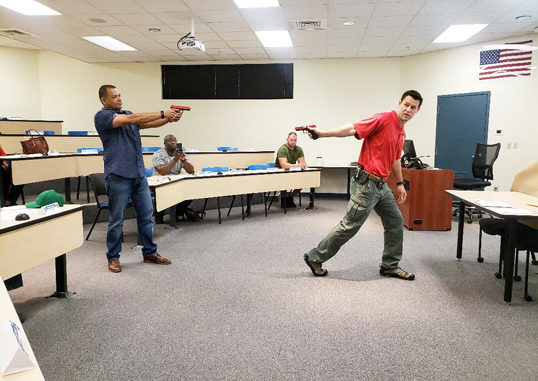
By Arthur Dobrin D.S.W. – There’s a difference between training and the real-world. Anti-bias training is touted as a way of combating racial biases among police officers. But research shows that the effect of such training isn’t wide-reaching. And under certain circumstances—often where it is most needed—it may not be effective at all.
These are the conclusions reached by Joshua Correll, from the University of Colorado, and Sean Hudson and Debbi Ma, from California State University, Northridge, after examining computer-based simulations of police encounters with potential hostile targets that are either Black or white.
There is abundant evidence that Blacks are five times as likely to be shot by cops than are whites. The data, however, can be interpreted in different ways. Some argue, for example, that the discrepancy is simply a reflection of the fact that cops were more likely to encounter Blacks in dangerous neighborhoods.
Correll argues, however, that laboratory simulations show conclusively that racial bias plays a major role in accounting for the difference. “Our work suggests that race affects the criterion . . . . indicating a greater willingness to open fire” on Black targets relative to white targets. The difference in the relative rates of shooting between Blacks and whites “stems from the stereotypic associations connecting Blacks to concepts of danger and threat in our culture.”
What if cops were made aware of this bias and were trained to overcome it? Researchers put cops through a first-person-shooter task (FPST) and found that those who participated and received feedback after each trial about whether to shoot or not (given targets that were randomly Black or white), the difference between white and Black targets declined dramatically.
Training did, indeed, make a difference. Those who received FPST training showed no statistical difference between Black and white targets that were shot. Interestingly, the racial biases of officers didn’t necessarily decrease. What did diminish, however, was the frequency of shootings and upon whom the cops pulled the trigger. Attitudes didn’t change but behavior did.
Real-life conditions, however, can be far different than a controlled laboratory. Cops are often tired, even fatigued. One study, done in 2000, showed that 40 percent of cops were sleep-deprived. And most cop shootings occur at night, a time when police reported being most fatigued. Fatigue takes its toll on normal behavior.
Labs are safe places. The street is very different. When confronted with an ambiguous situation, when the threat to one’s life may well be real, fear overcomes psychological control. I learned this myself in the army during basic training. We were instructed not to run if a flash-bang went off; we were to stand still and assess the situation. That night, on a mission in the woods, a device went off. Despite the repeated instructions during the day to stand firm, every one of us recruits ran as fast as we could.
Put together boredom (the typical cop’s day) with high arousal (what happens when confronting someone who may pose a deadly threat to your life), in ambiguous circumstances (most often the case) and you have erratic, irrational behavior that throws inhibitions to the wind.
Correll writes, “If training eliminates racial bias only for officers who are well-rested, calm and focused, then the benefits of training may evaporate when they are needed most.” Training, Correll, and colleagues conclude, should be as close to the real-world as possible, as was my military experience.
References
The Police Officer’s Dilemma: A Decade of Research on Racial Bias in the Decision to Shoot, Joshua Correll, et al, Social and Personality Compass 8/5, 2014
For more on the original article visit: https://www.psychologytoday.com/us/blog/am-i-right/202008/blacks-more-likely-targeted-whites-despite-traditional-police-training

Be the first to comment